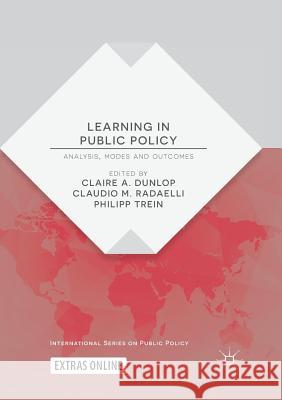Learning in Public Policy: Analysis, Modes and Outcomes » książka
topmenu
Learning in Public Policy: Analysis, Modes and Outcomes
ISBN-13: 9783030094300 / Angielski / Miękka / 2018 / 360 str.
Kategorie BISAC:
Wydawca:
Palgrave MacMillan
Seria wydawnicza:
Język:
Angielski
ISBN-13:
9783030094300
Rok wydania:
2018
Wydanie:
Softcover Repri
Numer serii:
000904308
Ilość stron:
360
Waga:
0.46 kg
Wymiary:
21.01 x 14.81 x 2.03
Oprawa:
Miękka
Wolumenów:
01
Dodatkowe informacje:
Wydanie ilustrowane











